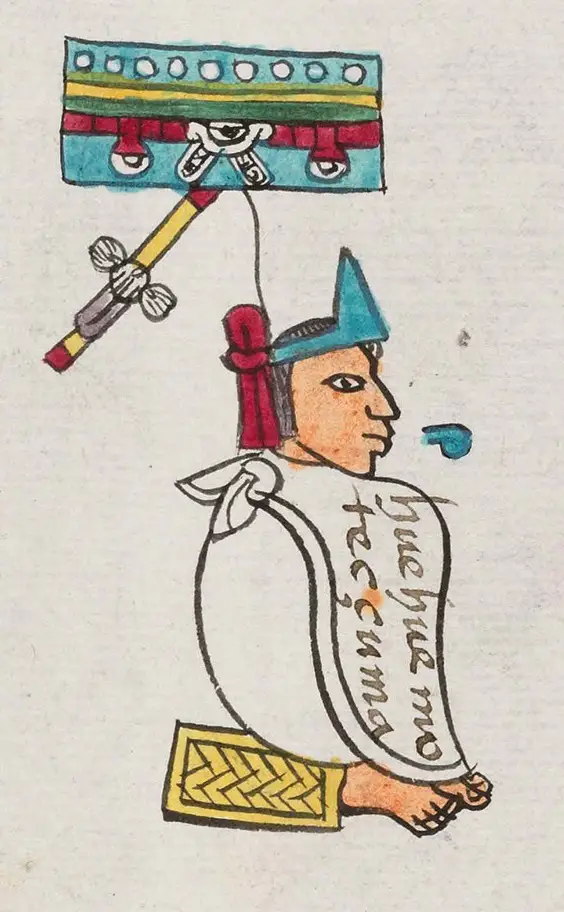Why did humanity develop differently on different continents?

Jared Diamond
Africa suffers without water, there is a poor population, there are many fevers. More developed countries, including the USSR and Russia, began to help Africans relatively recently. In North America, more than 90% of the indigenous peoples disappeared after the arrival of Europeans; the Inca and Aztec tribes also could not withstand the pressure of civilization and were wiped off the face of the Earth. Often these and other questions come to mind, but the answer cannot even be found on the Internet.
But then I came across an interesting article, more precisely, a speech from 1997, by Jared Diamond, an American biologist, historian, linguist, etc. Of course, it is impossible to say with one hundred percent probability that he is right. Same story, here no historian can be 100% sure of anything. Especially when it comes to such ancient times.
Why weren't the Native Americans, Africans and Australian Aborigines the ones who conquered or exterminated the Europeans and Asians?
Jared takes us back to 1500 AD, when Europe's overseas expansion was just beginning. And then the peoples of different continents already differed greatly in technology and political organization.
Much of Eurasia and North Africa was then occupied by Iron Age states and empires, some of them on the verge of industrialization. Two indigenous peoples of the Americas, the Incas and the Aztecs, ruled empires with stone tools and were just beginning to experiment with bronze. Parts of sub-Saharan Africa were divided among small local Iron Age states or chiefdoms. But all the peoples of Australia, New Guinea and the Pacific Islands, as well as the Americas and sub-Saharan Africa, still lived as farmers or even as hunter/gatherers with stone tools.
Until the end of the last Ice Age, all people on all continents still lived as Stone Age hunter-gatherers. The different rates of development on different continents then became the cause of inequality in 1500 AD. e.
While the aborigines of Australia and many indigenous peoples of the Americas remained in the Stone Age, most peoples of Eurasia and many peoples of the Americas and sub-Saharan Africa gradually developed agriculture, pastoralism, metallurgy and complex political organization. Indigenous writing also emerged in parts of Eurasia and one small area of the Americas. But each of these new developments appeared in Eurasia earlier than anywhere else.
Jared suggests rephrasing the question to: Why has human development progressed at such different rates on different continents over the past 13 years?
Many people speculate that the answer has to do with biological differences in average IQ among the world's population. Although there is no evidence for the existence of such differences in IQ.
And here the historian in his speech proposes to consider each of the “backward” continents at that time separately.
America
Most of us are familiar with the stories of how several hundred Spaniards overthrew the Aztec and Inca empires. Each of these empires had a population of tens of millions. We are also familiar with the gruesome details of how other Europeans conquered the rest of the New World. As a result, Europeans settled and dominated much of the New World.
Why didn't Emperor Montezuma or Atahualpa lead the Aztecs or Incas to conquer Europe instead?

Montezuma
Everything seems to be clear. The invading Europeans had steel swords, guns and horses, while the Native Americans only had stone and wood. weapon and no animals to ride on. These military advantages repeatedly allowed troops of several dozen mounted Spaniards to defeat armies of thousands of Indians.
Infectious diseases introduced by Europeans were transmitted from one Indian tribe to another long before the Europeans themselves and killed an estimated 95% of the Indian population of the New World. Europeans had time to develop both genetic and immune resistance to them, but the Indians initially did not have such resistance.
How was it that Pizarro and Cortés even reached the New World before the Aztec and Inca conquistadors could reach Europe?
This result depended in part on technology in the form of ships. The Europeans had them, while the Aztecs and Incas did not. In addition, these European ships were supported by a centralized political organization that allowed Spain and other European countries to build a fleet and man it with sailors.
Equally important was the role of European writing in facilitating the rapid dissemination of accurate, detailed information, including maps, sailing directions and reports.
But why did these advantages go to the Old World and not the New?
In theory, Native Americans could have been the first to invent steel swords and guns, the first to create ocean-going ships and empires and writing, the first to ride domestic animals more fearsome than horses, and carry germs more dangerous than smallpox.
First, most diseases we know of can only persist in large, dense populations of people concentrated in villages and towns, which arose much earlier in Europe.
Second, microbial studies by molecular biologists have shown that most diseases originate from dense populations of domestic animals. For example, measles and tuberculosis originated from diseases in cattle, influenza from a disease in pigs, and smallpox possibly from a disease in camels. On the American continent there were very few local domesticated animal species from which people could become infected with such diseases.
The historian develops the chain further. Why were there many more species of domestic animals in Eurasia than in America?
In fact, only a tiny fraction of wild mammal species have been successfully domesticated because domestication requires the wild animal to meet many conditions. Eurasia ended up having the most domesticated animal species, in part because it is the world's largest land mass and was originally home to the most wild species.
This pre-existing difference intensified 13 years ago, at the end of the last Ice Age, when most species of large mammals in the Americas became extinct, perhaps exterminated by the first Indian arrivals. As a result, Native Americans inherited far fewer species of large wild mammals than Eurasians, leaving them with only the llama and alpaca as domestic animals.
The Old World and New World differences in domesticated plants are similar.
Another reason is that the main axis of Eurasia is east/west, while the main axis of America is north/south. The east/west axis of Eurasia meant that species domesticated in one part of Eurasia could easily spread over thousands of miles at the same latitude. As a result, chickens and citrus fruits domesticated in Southeast Asia quickly spread westward into Europe; horses domesticated in Russia quickly spread to the east, to China, etc.
In contrast, America's north/south axis meant that species domesticated in one area could not spread far without encountering a climate to which they were not adapted. As a result, turkey never spread into the Andes; llamas and alpacas never penetrated into Mexico, so the Indian civilizations of Central and North America were left completely without pack animals. And it took thousands of years for the corn that evolved in the climate of Mexico to evolve into corn adapted to the short growing season in North America.
Domesticated plants and animals provide many more calories per acre than wild habitats, where most species are inedible to humans. As a result, the population density of farmers and pastoralists is typically 10 to 100 times higher than that of hunter/gatherers.
Pets have revolutionized land transportation. They also revolutionized agriculture, allowing one farmer to plow and fertilize much more land than he could farm on his own.
Africa
We can ask the same thing about Africa that we ask about America. Why did the Europeans take them over and not the other way around?
After all, humans have been evolving in Africa for millions of years longer than in Europe, and even anatomically modern Homo sapiens probably only arrived from Africa in the last 50 years. If time were a decisive factor in the development of human societies, Africa should have a huge head start.
The reasons are the same.
There were no domesticated animals in the sub-Saharan region except the guinea fowl. All the cattle, etc. came there later from the northern part of the continent. Unfortunately, rhinoceroses and hippos could not be tamed. And what kind of cavalry it would be! The rhinoceros riders would have completely crushed the European cavalry.
In Egypt, barley and wheat were popular crops. But these crops south of Ethiopia could not take root due to the climate. People were looking for other cultures. We found it, but spent a lot of time on it.
The north/south axis and the scarcity of wild plant and animal species suitable for domestication played a decisive role in African history. Although indigenous Africans domesticated some plants in Ethiopia and West Africa, they acquired valuable domestic animals only later, from the north.
Therefore, Europeans' advantages in weapons, ships, politics and writing helped colonize Africa, not the other way around.
Australia
Indigenous Australia had no farmers, no herders, no writing, no metal tools, and no political organization beyond the boundaries of a tribe or group. These are, of course, the reasons why European weapons and germs destroyed the Aboriginal society of Australia.
But why did all indigenous Australians remain hunter-gatherers?
Diamond suggests three reasons.
Firstly, even to this day, none of Australia's native animal species have proven suitable for domestication. There are still no domestic kangaroos.
Secondly, Australia is the smallest continent. Consequently, the total number of Australian hunter/gatherers was only about 300.
Finally, Australia is the most isolated continent. The only external connections of the Australian aborigines were weak contacts by water with the inhabitants of New Guinea and Indonesia.
Jared suggests looking at Tasmania.
Unlike mainland Australian Aborigines, Tasmanians did not know how to make fire; they had no boomerangs or shields; they did not have bone tools, special stone tools; they could not cut down a tree or hollow out a canoe; they had no needles to make clothes, despite Tasmania's cold winter climate with snow.
So, they could not cut down trees, sew, or make fire.
How did these huge gaps in Tasmanian material culture arise?

Tasmanians. Second half of the 19th century
Tasmania used to be connected to the southern Australian mainland when sea levels were low. People came to Tasmania tens of thousands of years ago, when it was still part of Australia. But then the Tasmanians had no further contact with the inhabitants of mainland Australia or any other people on Earth until the arrival of Europeans in 1642. Tasmanians have been isolated from other people for 10 years.
The Tasmanians actually abandoned some of the technologies they brought with them from Australia. For example, bone tools and fishing practices were present in Tasmania at a time when it was completely separated from the mainland. But all this disappeared. The Tasmanians thus lost valuable technologies: fish could be smoked to provide a supply of food for the winter, and bone needles could be used to sew warm clothes.
In short, the essence of the differences between the societies of Tasmania and mainland Australia is this. The rate of human invention is higher and the rate of cultural loss slower in areas where there are many societies that compete with each other. Because of this, the Tasmanians fell behind the more numerous Australians, and they fell behind the Europeans and Asians.
Information